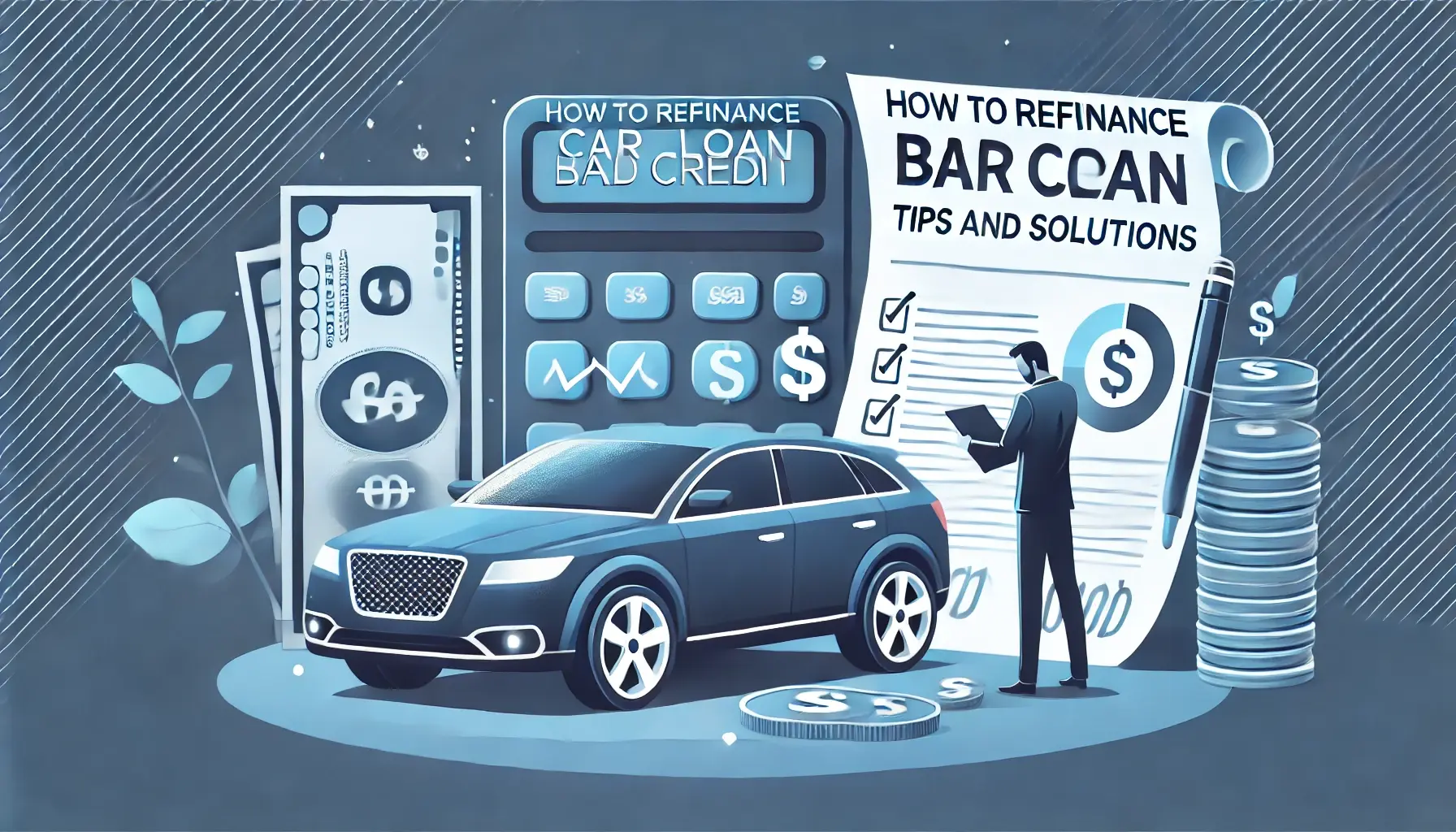Have you ever wondered, “Can I refinance my car with the same lender?” Refinancing a car loan means replacing your current loan with a new loan. This process could lead to benefits like a lower interest rate or a lower monthly payment. It depends on your current lender and the terms of your existing loan. This guide will explore the reasons, steps, and pros and cons of refinancing a car loan with the same bank.
Car Loan Refinancing
Car loan refinancing helps you adjust the terms of your current car loan. You can switch to a new lender or refinance your old loan with your current lender. The goal is often to secure better interest rates or terms for your current car. Use an online loan calculator to estimate how much you could save by refinancing your car loan.

How Loan Refinancing Works for Auto Loans
When you refinance, the original loan is replaced by a new loan. The lender may assess factors like your car insurance, credit score, and the value of your current car. Refinancing often results in a more manageable monthly payment.
Refinancing a Car Loan with a Different Bank vs. Your Current Bank
When you refinance an auto loan, you have two options: refinance with the same lender or refinance with a different lender. Refinancing with your current bank can be easier since they already know your credit history. However, a loan with a new lender might offer a better interest rate or more favorable terms. Both options can help adjust the life of the loan, but it depends on the offers available.
Reasons to Refinance Your Car Loan
Top Reasons to Refinance Your Car Loan with the Same Bank
There are many reasons people choose to refinance loans. Some want a lower interest rate to save money over the life of the loan. Others might want to reduce their monthly payment. You may also refinance an auto loan if you need to adjust your terms for better flexibility, especially if your financial situation changes.
Why Consider Refinancing Your Car Loan with a Different Lender?
When Is the Right Time to Refinance Your Auto Loan?
The right time to choose to refinance your auto loan is when interest rates drop or your credit score improves. A lower rate means the loan can help you save money over time. If you struggle to manage your monthly payments, refinancing your loan might also make it easier by lowering your payment amount.
Steps to Refinance Your Car Loan
How to Apply for a Loan Refinance with Your Current Bank
First, contact your bank to check their refinancing options. The lender will pay off your existing loan when you refinance. Replacing your loan with a new one lets you benefit from better terms. Ensure you provide all necessary documents, such as income proof and car details, to complete the process smoothly.
Loan Application Tips for Car Loan Refinancing
Start by calculating how much you owe and determine the savings potential of an auto refinance loan. Next, review your credit report to improve your chances of approval. Once approved, the new lender will pay off your loan, simplifying the transition to better terms. Always compare offers to secure the best deal.
Refinancing a Car Loan for Better Loan Terms and Lower Payments
Refinancing a car loan replaces your existing car loan with one that offers better terms. This option works if your current auto loan has high interest rates or monthly car payments that are too high. You may be able to refinance and save money while still being able to keep the car.
Key Factors to Consider Before Refinancing
How Your Credit Score Affects Car Loan Refinancing
Your credit score plays a major role in car refinancing. If your credit has improved since your original auto loan, you may be able to refinance your car at a lower interest rate. A better credit score means the car loan can help you save money and reduce financial stress.
Monthly Payment vs. Loan Term
Car Finance Insights for Successful Loan Refinancing
It is important to know about refinancing your car before making a decision. Refinancing lets you replace your existing loan for a new one with better terms. This process can reduce your interest rate or monthly payments and help you better manage your finances.
Benefits of Refinancing Your Car Loan with Same Bank
Lower Your Monthly Payments with Auto Loan Refinancing
Refinancing your car loan with your current lender can simplify the process and lower your monthly payments. They can offer a new loan with different terms that better fit your budget. This option avoids unnecessary fees and keeps the process smooth.
Get Better Loan Terms with a Loan Refinance from a Different Lender
Why Refinancing Your Car Loan May Save You Money Over Time
Refinancing replaces your auto loan with a new one that offers better terms. This can save money, especially if your car is less expensive now or interest rates have dropped since your first auto loan. A loan by refinancing can lower your payments or reduce the total amount you pay over time. Wondering if car loan rates will go down in 2024? Find out what experts predict and how it could benefit you.
Comparing Refinancing Options
Should You Refinance a Car Loan with the Same Bank or a Different Lender?
When refinancing, you can choose to stay with your current car finance provider or switch to a new one. If your car is close to being paid off, refinancing with the same bank might be simpler. However, a new lender might offer a type of loan with better interest rates or terms. Learn more about how interest rates work on a car loan and how they impact your refinancing decision.
Pros and Cons of Refinancing a Loan with the Same Lender
How Car Loan Refinancing Can Work in Your Favor
Car loan refinancing can help you save money by replacing your original car loan with better terms. If you have a good credit score, your lender may allow you to refinance at a lower interest rate. This could lower your current loan balance and make it easier to pay off your loan earlier than planned.



